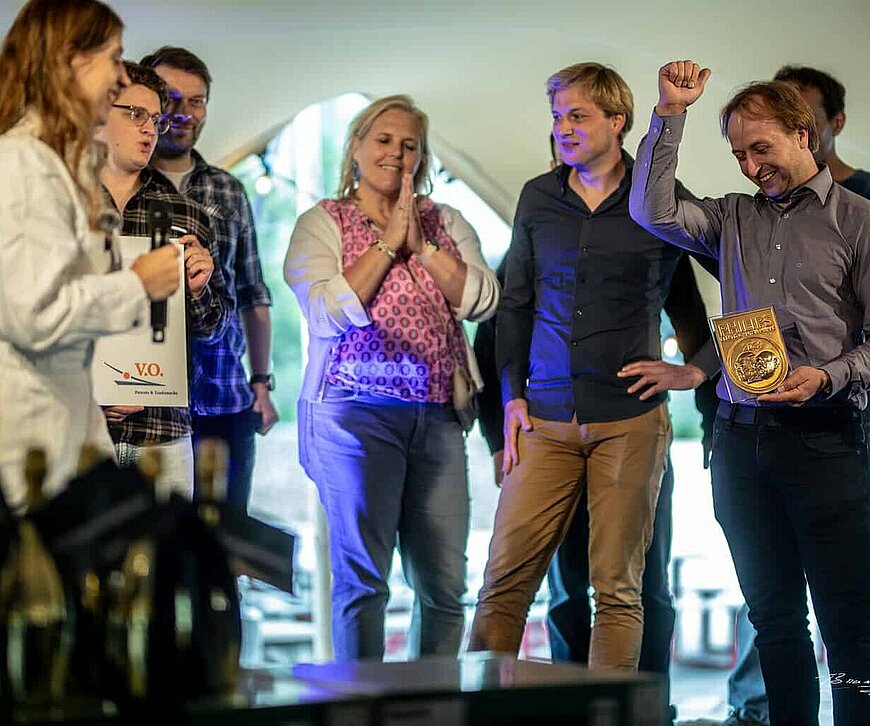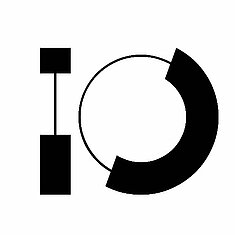VitalFluid offers a sustainable alternative to chemical pesticides

By mimicking lightning, VitalFluid, a TU/e spin-off, is developing a sustainable alternative to chemical pesticides in greenhouse farming.
When lightning strikes water, it temporarily disinfects it. Rain during a thunderstorm also has this short-lived effect. Co-founder and CEO Paul Leenders: 'The universe is 99% plasma. A special segment within the world of plasma is combining air plasma with water. This is how thunderstorms originate. Thunderstorms are not called green rain for nothing. These plasma-activated water showers have a temporary cleansing effect, and the remaining water contains a higher bound nitrogen content. This is nature’s way of providing nutrients to plants and trees. Lightning strikes somewhere in the world 8 million times a day, accounting for more than 10% of all bound nitrogen on Earth.'
Mimicking nature
Startup VitalFluid mimics that principle to eliminate chemical pesticides and is developing a sustainable form of fertilization through Plasma Activated Water (PAW). The company developed a reactor that brings normal ambient air into a plasma phase. The fourth state of aggregation after solid, liquid and gas. Leenders: 'Air consists of about eighty percent nitrogen and twenty percent oxygen. With electrical energy, we mimic lightning bolts passing through the air.' Thus, the air enters a plasma phase. That air brings the reactor into contact with “ordinary water.” 'When you do that, that water has a short-term disinfecting effect. That reactivity disappears after about 20 minutes to half an hour.'
By copying lightning, VitalFluid can provide natural nitrogen as a sustainable liquid fertilizer for plants and crops. It is produced on the farm and uses only water and ambient air as inputs. Growers are thus less dependent on external inputs. Leenders says: 'As early as 2012, it became clear that we could offer a sustainable alternative to pesticides with this technology. An additional advantage was that PAW as a residue is a fertilizer and can, therefore, be fully absorbed by the plant. We are now focusing mainly on greenhouse horticulture, but we will also add the horticulture and open cultivation segment to our portfolio.'
Fruitful encounter
Founders Paul Leenders and Polo van Ooij met in 2014. At the time, Leenders was working on a TNO Space and ESA project to disinfect and sterilize air. Through that project, he came into contact with plasma specialists at TU/e.
Van Ooij graduated as an electrical engineer from TU Eindhoven in 2014 and is responsible for the technical side of the business. The men saw the technology’s potential. In a subsequent project with Wageningen University and the Radboudumc, several companies from Nijmegen and TU Eindhoven, as technology providers, investigated how the technology could be applied safely.
Leenders: 'The joint project showed excellent results. There also appeared to be opportunities to use plasma-activated water as a sustainable alternative to chemical pesticides.'
Struggling with laws and regulations
They now sell their reactors in Europe and the United States. The most significant challenge the startup encountered, is leglislations and regulations, especially in the EU. 'This imposes significant barriers to entering the market with our products', Leenders explains. 'It is often a long and expensive process of up to eight years to comply with all the procedural requirements for EU approval. Outside Europe, it is only one to two years.' The biggest highlight, Leenders said, occurred outside the EU. 'In the U.S., in terms of laws and regulations, much more is possible. I see the first ten machines VitalFluid sold in the U.S. as our most important success.'
Brainport as the most logical place
VitalFluid is located in the Brainport region, which is a conscious choice. The company could choose between Nijmegen and Eindhoven, but it chose the latter. 'Precisely because of the ecosystem. We are a high-tech company and benefit from a high-tech network and other high-tech companies, so Brainport was—and is—the most logical place for us.'
The Gerard & Anton Awards are supported by EY, Rabobank, V.O. Patents & Trademarks, TWICE, Kadans Science Partner, Braventure, Lumo Labs, Gemeente Eindhoven, High Tech Campus, Philips, Goevaers & Znn. B.V. and DeepTechXL.

